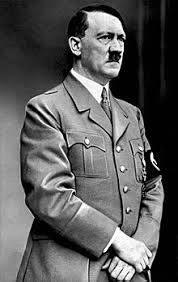Is there such thing as a psychically stable person? Or is this just an illusion in this modern world? Some people say that you have to be a little bit crazy to survive nowadays. But where is the line between being normal, acting under broadly-accepted social norms, and being special, with your own understanding about normality? And what happens when that self-perception of superiority begins to affect other people adversely?

 Perhaps the two figures of the 20th century whose perception of the world was very different than their contemporaries, with tragic consequences to everyone around them, were Jim Jones of Peoples Temple and Adolf Hitler. Does anything separate them, aside from the level of the holocausts which each man perpetrated? Each left a legacy of horror and death; each created deep psychological damage for his survivors; and since each died mere hours before he would have faced capture, arrest, and trial, neither will be completely understood.
Perhaps the two figures of the 20th century whose perception of the world was very different than their contemporaries, with tragic consequences to everyone around them, were Jim Jones of Peoples Temple and Adolf Hitler. Does anything separate them, aside from the level of the holocausts which each man perpetrated? Each left a legacy of horror and death; each created deep psychological damage for his survivors; and since each died mere hours before he would have faced capture, arrest, and trial, neither will be completely understood.
What else do those two men have in common? Let’s first consider their childhoods.
Ostensibly reacting to the attitudes of a distant and neglecting father, Jim Jones was clearly against racial prejudice and embraced people of all colours and creeds. But he had an unhealthy obsession with death, a key characteristic seen in children who suffer from depression. His alienation from the outside world eventually led him to develop a comune in Jonestown, far away from the scrutiny of governmental authorities and concerned family members.
Hitler, on the other hand, had a very hard childhood, enduring physical abuse at the hands of his tyrannical father. While he refused to show any emotions at all as a child, Hitler’s hatred for his father transferred into a hatred for Jews, and his life was primarily motivated by resentment and revenge.
There is no question that the personalities of both men were characterized by pathological narcissism. It is frequently the case that a terrifying feeling of total helplessness and powerlessness in childhood can lead to this result. To draw a parallel between them, I believe both of them had different psychological instabilities in childhood which developed later in life into a need to lead, a need driven by this pathological narcissism.
In addition, both men had charismatic personalities, and each saw himself as a messiah, the one who is meant to lead, to have some kind of super power that differentiates them from others. Each possessed the charisma and manipulative abilities to make people follow him. They were, as we can say, natural leaders, and each gained authority over huge masses as a result.
What in problematic here is if these leadership qualities are abused – and for these two men, they were – there can be devastating consequences. The social boundaries do not apply for narcissists, because they see themselves as superior and beyond any rules. They can do nothing wrong.
Fear also played a huge role in why people followed each of these men. Hitler presented Jews as handicapped persons with a biological threat to purity of the German race. He also spewed the propaganda that Jews were responsible for German economic depression and the country’s defeat in World War I. Jim Jones had his own »other,« his own target of hate – monopolistic, fascist, capitalist, imperialist America – which would, as he stated in the death tape, »torture our babies and our seniors« if any of them were left alive after November 18.
There may be other Adolf Hitlers or Jim Jones in our future – there may even be some among us today – and it is both society’s challenge and responsibility to identify the underlying and contributing instabilities that children display at an early age and to provide the help they need to overcome them.
(Manca Konjedic lives in Kranj, Slovenia and is a regular contributor to the jonestown report. Her previous articles are here.)